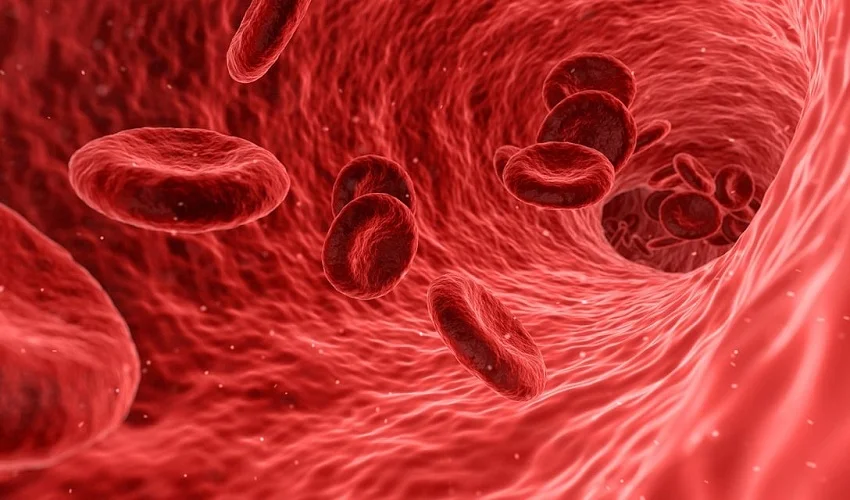What is sapota?
Sapota, also known as chikoo, is a tropical fruit that is native to Mexico and Central America. It belongs to the Sapotaceae family and is known for its sweet and delicious taste. Sapota is packed with nutrients and is a great source of dietary fiber, which makes it beneficial for diabetes care. It has a low glycemic index, which means it does not cause a rapid increase in blood sugar levels. Additionally, sapota contains antioxidants and vitamins that help in maintaining overall health. Including sapota in a diabetic diet can help regulate blood sugar levels and provide essential nutrients.
Nutritional value of sapota
Sapota, also known as chikoo, is a delicious tropical fruit that not only satisfies your taste buds but also provides numerous health benefits. When it comes to the nutritional value of sapota, it is packed with essential vitamins, minerals, and antioxidants. This fruit is a rich source of dietary fiber, which aids in digestion and helps regulate blood sugar levels. Additionally, sapota is loaded with vitamin C, which boosts the immune system and promotes healthy skin. It also contains potassium, magnesium, and calcium, which are essential for maintaining strong bones and muscles. Including sapota in your diet can be a great way to improve your overall health and well-being.
Benefits of sapota in diabetes care
Sapota, also known as chikoo, is a delicious fruit that offers numerous benefits in diabetes care. One of the key advantages of sapota is its low glycemic index, which means it has a minimal impact on blood sugar levels. This makes it a suitable fruit for individuals with diabetes as it helps regulate blood sugar levels and prevents sudden spikes. Additionally, sapota is rich in dietary fiber, which aids in digestion and helps control blood sugar levels. The fruit is also packed with essential vitamins and minerals, including vitamin C, potassium, and magnesium, which are beneficial for overall health. Consuming sapota regularly can contribute to better diabetes management and improve overall well-being.
Understanding Diabetes
What is diabetes?
Diabetes is a chronic condition that affects the body’s ability to regulate blood sugar levels. It occurs when the pancreas does not produce enough insulin or when the body cannot effectively use the insulin it produces. Insulin is a hormone that helps move glucose from the bloodstream into the cells, where it is used for energy. When this process is disrupted, blood sugar levels can become too high, leading to various health complications. Managing diabetes requires careful monitoring of blood sugar levels, following a balanced diet, engaging in regular physical activity, and taking medication as prescribed.
Types of diabetes
There are several types of diabetes, including type 1 diabetes, type 2 diabetes, and gestational diabetes. Type 1 diabetes is an autoimmune disease where the body’s immune system mistakenly attacks and destroys the insulin-producing cells in the pancreas. This type of diabetes usually develops in childhood or adolescence. Type 2 diabetes is the most common type and is characterized by insulin resistance, where the body’s cells do not respond properly to insulin. This type of diabetes is often associated with lifestyle factors such as obesity and lack of physical activity. Gestational diabetes occurs during pregnancy and usually resolves after childbirth. It is important to understand the different types of diabetes in order to effectively manage and treat the condition.
How does diabetes affect the body?
Diabetes is a chronic condition that affects the body’s ability to regulate blood sugar levels. When a person has diabetes, their body either does not produce enough insulin or does not use insulin effectively. As a result, glucose builds up in the bloodstream, leading to high blood sugar levels. Over time, this can cause damage to various organs and systems in the body. The cardiovascular system, for example, can be affected by diabetes, increasing the risk of heart disease and stroke. Additionally, diabetes can damage the kidneys, eyes, and nerves, leading to complications such as kidney disease, vision problems, and neuropathy. It is important for individuals with diabetes to manage their blood sugar levels through medication, diet, and exercise to prevent or minimize these potential complications.
Managing Diabetes
Dietary considerations for diabetes
When it comes to managing diabetes, dietary considerations play a crucial role. For individuals with diabetes, it is important to carefully choose the types and amounts of food they consume to maintain stable blood sugar levels. When it comes to sapota, also known as chikoo, it can be a beneficial addition to a diabetes-friendly diet. Sapota is a tropical fruit that is rich in fiber, which helps regulate blood sugar levels and improve digestion. Additionally, sapota contains natural sugars that are absorbed slowly by the body, preventing sudden spikes in blood sugar. However, it is important to consume sapota in moderation as part of a balanced diet to avoid excessive sugar intake. Overall, incorporating sapota into a diabetes care plan can be a nutritious and delicious way to manage blood sugar levels.
Exercise and physical activity
Regular exercise and physical activity play a crucial role in managing diabetes. Engaging in physical activities like walking, jogging, swimming, or cycling helps to improve insulin sensitivity and lower blood sugar levels. It also aids in maintaining a healthy weight, reducing the risk of heart disease, and improving overall well-being. Exercise helps to control blood pressure, increase good cholesterol levels, and reduce bad cholesterol levels. Additionally, it helps to relieve stress and improve sleep quality, which are important factors in managing diabetes. Therefore, incorporating exercise and physical activity into daily routine is highly recommended for individuals with diabetes.
Monitoring blood sugar levels
Monitoring blood sugar levels is an essential part of managing diabetes. Regularly checking your blood sugar levels helps you understand how your body is responding to different foods, medications, and activities. It allows you to make informed decisions about your diet and lifestyle to keep your blood sugar levels within a healthy range. By monitoring your blood sugar levels, you can also identify any potential fluctuations or patterns that may require adjustments to your diabetes management plan. It is important to work closely with your healthcare team to establish a monitoring routine that suits your individual needs and to ensure accurate and reliable results.
Role of Sapota in Diabetes Care
Sapota as a low glycemic index fruit
Sapota, also known as chikoo, is a delicious and nutritious fruit that can be a great addition to a diabetes care plan. One of the key benefits of sapota is its low glycemic index, which means it has a minimal impact on blood sugar levels. This makes it an excellent choice for individuals with diabetes who need to manage their blood sugar levels. Additionally, sapota is rich in dietary fiber, which helps in regulating blood sugar levels and promoting better digestion. It is also packed with essential vitamins and minerals, including vitamin C, vitamin A, potassium, and calcium, which contribute to overall health and well-being. Including sapota in a balanced diet can provide numerous health benefits for individuals with diabetes.
Rich in dietary fiber
Sapota, also known as chikoo, is a fruit that is highly beneficial for diabetes care. One of the reasons for its effectiveness is its high content of dietary fiber. Dietary fiber plays a crucial role in managing blood sugar levels as it slows down the absorption of sugar in the bloodstream. This helps in preventing sudden spikes in blood sugar levels and maintaining a more stable glucose level. Additionally, the fiber in sapota also aids in digestion and promotes a healthy gut. Including sapota in the diet can be a great way to improve diabetes management and overall health.
Contains essential nutrients for diabetes management
Sapota, also known as chikoo, is a delicious tropical fruit that offers numerous benefits for diabetes care. It is packed with essential nutrients that can help in managing diabetes effectively. Sapota is rich in dietary fiber, which aids in regulating blood sugar levels and preventing sudden spikes. Additionally, it is a good source of vitamins A and C, which are known for their antioxidant properties. These antioxidants help in reducing oxidative stress and inflammation, which are common complications of diabetes. Moreover, sapota contains minerals like potassium and magnesium, which play a vital role in maintaining healthy blood pressure levels. Including sapota in a diabetes diet can provide a sweet and nutritious addition while promoting overall well-being.
Research on Sapota and Diabetes
Studies on the effects of sapota on blood sugar levels
Several studies have been conducted to evaluate the effects of sapota on blood sugar levels. These studies have shown promising results, indicating that sapota can be beneficial in diabetes care. One study found that consuming sapota regularly helped to regulate blood sugar levels and improve insulin sensitivity. Another study demonstrated that sapota extract had anti-diabetic properties, reducing fasting blood sugar levels and improving glucose tolerance. Additionally, sapota contains dietary fiber, which can help slow down the absorption of sugar in the bloodstream, preventing sudden spikes in blood sugar levels. Overall, the findings from these studies suggest that incorporating sapota into the diet may help in managing blood sugar levels and contribute to better diabetes care.
Potential mechanisms of action
Sapota, also known as chikoo, has been found to have potential mechanisms of action that can contribute to diabetes care. One of the key mechanisms is its ability to regulate blood sugar levels. Sapota contains natural sugars, including fructose, which are slowly absorbed by the body, resulting in a gradual rise in blood sugar levels. This helps prevent sudden spikes in blood sugar, which is beneficial for individuals with diabetes. Additionally, sapota is rich in dietary fiber, which slows down the absorption of carbohydrates and helps control blood sugar levels. Furthermore, sapota is a good source of antioxidants, such as vitamin C and vitamin E, which can help reduce oxidative stress and inflammation associated with diabetes. These potential mechanisms of action make sapota a promising fruit for diabetes management.
Comparison with other fruits in diabetes management
When it comes to diabetes management, sapota stands out among other fruits. Unlike high-sugar fruits like bananas and grapes, sapota has a low glycemic index, which means it doesn’t cause a rapid spike in blood sugar levels. This makes it a great choice for individuals with diabetes who need to monitor their blood sugar levels. Additionally, sapota is rich in dietary fiber, which helps regulate blood sugar levels and improve digestion. The high fiber content also makes sapota a filling fruit, helping to control appetite and prevent overeating. Overall, incorporating sapota into a diabetes management plan can provide numerous benefits and contribute to better overall health.
Summary of sapota benefits in diabetes care
Sapota, also known as chikoo, is a delicious tropical fruit that offers numerous benefits for diabetes care. It is rich in dietary fiber, which helps regulate blood sugar levels and improve insulin sensitivity. Additionally, sapota contains antioxidants that protect against oxidative stress, a common complication of diabetes. The fruit is also low in calories and high in essential nutrients, making it a healthy choice for individuals with diabetes. Regular consumption of sapota can contribute to better blood sugar control and overall diabetes management. In conclusion, sapota is a valuable addition to a diabetic diet and can provide significant health benefits.
Recommendations for incorporating sapota into a diabetes-friendly diet
Incorporating sapota, also known as chikoo, into a diabetes-friendly diet can be a beneficial choice. Sapota is a delicious tropical fruit that is rich in fiber and low in glycemic index, making it a suitable option for individuals with diabetes. The high fiber content in sapota helps regulate blood sugar levels and improve digestion. Additionally, sapota is packed with essential nutrients like vitamins A, C, and E, as well as minerals like potassium and magnesium. These nutrients contribute to overall health and well-being. To incorporate sapota into a diabetes-friendly diet, it is recommended to consume it in moderation and as part of a balanced meal plan. It can be enjoyed as a snack, added to smoothies, or used as a natural sweetener in desserts. However, it is important to monitor blood sugar levels and consult with a healthcare professional to determine the appropriate portion size and frequency of consumption. By incorporating sapota into a diabetes-friendly diet, individuals can enjoy its sweet taste while reaping the numerous health benefits it offers.
Future research directions
Future research directions in the field of sapota benefits in diabetes care should focus on conducting more clinical trials to evaluate the efficacy and safety of sapota in managing blood sugar levels. Additionally, studies should investigate the potential mechanisms of action of sapota in regulating insulin secretion and improving insulin sensitivity. Furthermore, research should explore the long-term effects of sapota consumption on glycemic control and its impact on other diabetes-related complications. Understanding the optimal dosage and duration of sapota intake for maximum therapeutic benefits is also an important area for future investigation. Overall, further research in this area will contribute to a better understanding of the potential role of sapota in diabetes management and pave the way for the development of evidence-based guidelines for its use in clinical practice.




